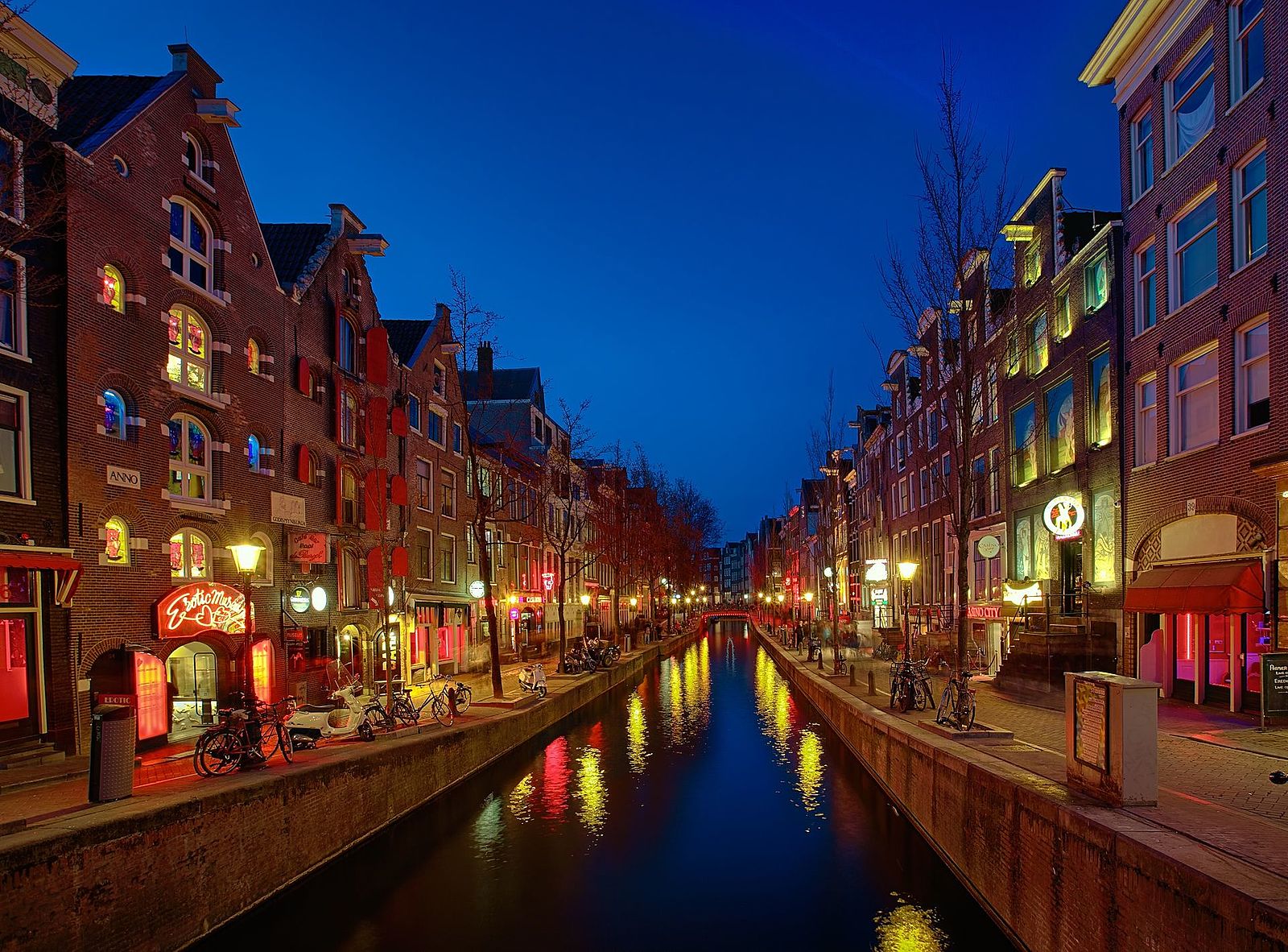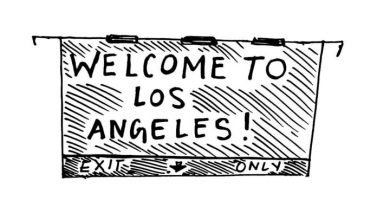Exploiting Claims of Exploitation? Amsterdam’s Controversial New ‘Clean’ Model for Empowering Sex Workers

Image by Sergey Ashmarin via Wikimedia Commons / CC BY 3.0
On May 16, the mayor of Amsterdam opened a brothel run by a sex worker organization in the city’s red-light district. Typically, sex workers are under the control of pimps; therefore, the transfer of leadership is being hailed as a “whole new model for prostitution.”
This is Amsterdam’s latest attempt to create a space for a “clean” sex industry and limit the amount of human trafficking. A “clean” sex industry would entail a workplace free of pimps and their exploitation of sex workers. The Netherlands has attempted to improve the sex industry in the past, for instance, by legalizing prostitution in 2000. Although prostitution in the Netherlands is a legal profession, practitioners need a license, to adhere to municipal rules, and to pay taxes. However, the legislation has not been successful in curbing human trafficking and other illicit enterprises.
In 2007, with the implementation of Project 2012, over a hundred windows were closed in an attempt to decrease organized crime. This gentrifying project resulted in fewer job openings for sex workers, leading to a protest by over 200 sex workers in April 2015 in the center of Amsterdam. Now, the city is trying to do a better job listening to the needs of the sex workers. The new alternative method for running a brothel is receiving international attention and sparking a debate.
My Red Light, the sex worker organization running the brothel, is a recently formed organization that has a strong desire to be inclusive. Their wish to be accepting of different sex workers, sexual experiences, and consumers is explicitly stated in their mission statement and press release. Spokeswoman Dinah Bons stated that those at My Red Light, “want to create a safe and comfortable place for the whole community.” In order to achieve this, the brothel includes a wheelchair-accessible entrance, a discreet entrance, and a kinky room. My Red Light is interested in fostering a workplace free of “(gender) stereotyping” and that will thereby employ both cisgender men and transgender sex workers. If My Red Light’s brothel is successful, this would not only mean a step forward for those in the sex work industry, but also for the continued expansion and acceptance of various gender roles and gender dynamics.
My Red Light was founded to ensure that sex workers’ needs are satisfied and their complaints accounted for. Marieke de Ridder, a member of the supervisory board of My Red Light, said “sex workers will determine their own rental terms and working hours” along with having “more social control.” In the brothel, there is a special living room where the sex workers can socialize and exchange information about working in the industry. As of right now, My Red Light is also organizing trainings and courses for the sex workers where they can learn about various topics, from giving massages to accounting. Sonja Pol, the manager of the city’s prostitution programme, stated: “when sex workers have a say in where, how and when they are working, they become less dependent on third parties. By setting up their own window brothel, sex workers acquire knowledge, experience and a position to develop themselves.” Both the city and My Red Light hope that with more education and independence, the sex workers will be able to freelance and escape the exploitation that is rife among many other brothels.
The opening of this brothel has been met with criticism. One critic of My Red Light’s brothel is prostitution researcher Karin Werkman. Werkman believes the entire project is questionable, stating “prostitution is a form of sexual exploitation,” and that “there can be no guarantees of ‘clean’ prostitution.” As argued by The Huffington Post’s Chelsea-Lyn Rudder, regulating brothels, as seen since the legalization of prostitution in 2000, does not do enough to “stymie the impact of global human trafficking” and instead allows for “licensed brothels [to become] a magnet for human trafficking.” Likewise, Rachel Moran, a victim of sex trafficking, asserts that the “legal has attracted illegal [trafficking].”
The government has claimed that My Red Light is run by and for sex workers, however, not one board member is a sex worker. Instead, supposed “experts”— including people from aid organizations— make up the Council of Supervision. As explained by sex worker Felicia Anna, the sex workers in the new brothel are “still as [dependent on] brothel operators now with My Red Light as before, nothing has changed.” Furthermore, My Red Light has presented this brothel as providing better working conditions for the sex workers. However, Felicia Anna notes that their prices are actually higher than most brothels, rental cancellations must be made a week in advance, and rent must be paid for the first two days a sex worker is sick. These rules directly conflict with the brothel’s mission to allow sex workers to have more control over their work schedules.
Pol has responded to critics by saying that, “the council [of My Red Light] realizes full well that My Red Light is not the solution for the problems in the sex industry. That’s not what this project is meant for. What we are aiming at is empowerment for sex workers.” The mayor of Amsterdam, Eberhard van der Laan, adds that, “The fact that sex workers are going to run a prostitution company themselves is an important next step in the normalization of sex work.”
The mayor’s words bring up an important point and issue that persists throughout many societies around the world: the stigmatization of, and consequential disrespect for, sex work. This industry has been a hot button topic for decades, with constant reference to it as someone “selling their body.” However, it is more accurate to see sex work as selling an experience, like many other professions which provide a service. To say someone is selling their body is objectifying and dehumanizing, highlighting obvious issues with the phrase. Sex work should be viewed as sex workers providing their customers with various consensual sexual interactions in exchange for money. The new brothel in Amsterdam theoretically works towards empowering the sex workers, ensuring they are respected and obtain the safety and rights they deserve.
My Red Light believes they have, “managed to set an example for the rest of Europe” and that the brothel is a, “major step forward… in regard[s] to the empowerment of sex workers.” However, this is not the first time the government in the Netherlands believed they had finally addressed and fixed prominent issues in the sex industry. While promising, only time will tell just how successful is this new way of managing a brothel.




